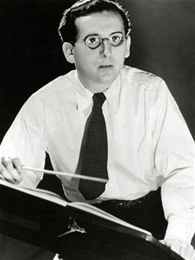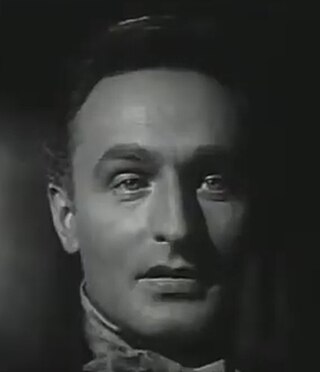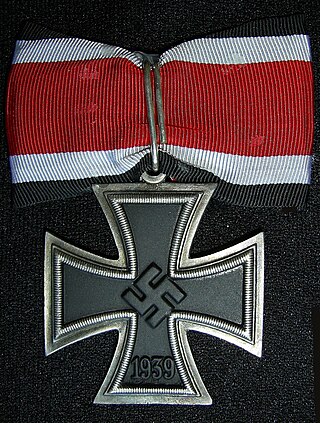This is a list of the most notable films produced in the Cinema of Germany in 1940.
This is a list of the most notable films produced in the Cinema of Germany in 1940.

The Battle of Britain was a military campaign of the Second World War, in which the Royal Air Force (RAF) and the Fleet Air Arm (FAA) of the Royal Navy defended the United Kingdom (UK) against large-scale attacks by Nazi Germany's air force, the Luftwaffe. It was the first major military campaign fought entirely by air forces. The British officially recognise the battle's duration as being from 10 July until 31 October 1940, which overlaps the period of large-scale night attacks known as the Blitz, that lasted from 7 September 1940 to 11 May 1941. German historians do not follow this subdivision and regard the battle as a single campaign lasting from July 1940 to May 1941, including the Blitz.

The Great Dictator is a 1940 American anti-war, political satire, and black comedy film written, directed, produced, scored by, and starring British comedian Charlie Chaplin, following the tradition of many of his other films. Having been the only Hollywood filmmaker to continue to make silent films well into the period of sound films, Chaplin made this his first true sound film.

Ernst Lubitsch was a German-born American film director, producer, writer, and actor. His urbane comedies of manners gave him the reputation of being Hollywood's most elegant and sophisticated director; as his prestige grew, his films were promoted as having "the Lubitsch touch". Among his best known works are Trouble in Paradise (1932), Design for Living (1933), Ninotchka (1939), The Shop Around the Corner (1940), To Be or Not to Be (1942) and Heaven Can Wait (1943).

Battle of Britain is a 1969 British war film directed by Guy Hamilton, and produced by Harry Saltzman and S. Benjamin Fisz. The film documents the events of the Battle of Britain. The film drew many respected British actors to accept roles as key figures of the battle, including Laurence Olivier as Air Chief Marshal Sir Hugh Dowding, Trevor Howard as Air Vice-Marshal Keith Park, and Patrick Wymark as Air Vice-Marshal Trafford Leigh-Mallory. It also starred Michael Caine, Christopher Plummer, and Robert Shaw as Squadron Leaders. The script by James Kennaway and Wilfred Greatorex was based on the book The Narrow Margin by Derek Wood and Derek Dempster.

Curd Gustav Andreas Gottlieb Franz Jürgens was a German-Austrian stage and film actor. He was usually billed in English-speaking films as Curt Jurgens. He was well known for playing Ernst Udet in Des Teufels General. His English-language roles include James Bond villain Karl Stromberg in The Spy Who Loved Me (1977), Éric Carradine in And God Created Woman (1956), and Professor Immanuel Rath in The Blue Angel (1959).

The Home Guard was an unpaid armed citizen militia supporting the 'Home Forces' of the British Army during the Second World War. Operational from 1940 to 1944, the Home Guard comprised more than 1.5 million local volunteers otherwise ineligible for military service, such as those who were too young or too old to join the regular armed services and those in reserved occupations. Excluding those already in the armed services, the civilian police or other civil defence volunteer organisations, approximately one in five men were Home Guard volunteers. Their primary role was to act as a secondary defence force in their home locality in case of invasion by the forces of Nazi Germany.

Franz Waxman was a German-born composer and conductor of Jewish descent, known primarily for his work in the film music genre. His film scores include Bride of Frankenstein, Rebecca, Sunset Boulevard, A Place in the Sun, Stalag 17, Rear Window, Peyton Place, The Nun's Story, and Taras Bulba. He received twelve Academy Award nominations, and won two Oscars in consecutive years. He also received a Golden Globe Award for the former film. Bernard Herrmann said that the score for Taras Bulba was "the score of a lifetime."

Anton Diffring was a German actor. He had an extensive film and television career in the United Kingdom from the 1940s to the 1980s, latterly appearing in international films. Primarily a character actor, he often played Nazi officers in World War II films, and other antagonistic authority figures.
Hans Dreier was a German motion picture art director. He was Paramount Pictures' supervising art director from 1927 until his retirement in 1950, when he was succeeded by Hal Pereira.

The military occupation of the Channel Islands by Nazi Germany lasted for most of the Second World War, from 30 June 1940 until liberation on 9 May 1945. The Bailiwick of Jersey and Bailiwick of Guernsey are British Crown dependencies in the English Channel, near the coast of Normandy. The Channel Islands were the only de jure part of the British Empire in Europe to be occupied by Nazi Germany during the war. Germany's allies Italy and Japan also occupied British territories in Africa and Asia, respectively.

Mrs. Miniver is a 1942 American romantic war drama film directed by William Wyler, and starring Greer Garson and Walter Pidgeon. Inspired by the 1940 novel Mrs. Miniver by Jan Struther, it shows how the life of an unassuming British housewife in rural England is affected by World War II. Produced and distributed by Metro-Goldwyn-Mayer, its supporting cast includes Teresa Wright, May Whitty, Reginald Owen, Henry Travers, Richard Ney and Henry Wilcoxon.

Joe May was an Austrian film director and film producer and one of the pioneers of German cinema.

Santa Fe Trail is a 1940 American western film directed by Michael Curtiz and starring Errol Flynn as J. E. B. "Jeb" Stuart, Olivia de Havilland, Raymond Massey as John Brown, Ronald Reagan as George Armstrong Custer and Alan Hale. Written by Robert Buckner, the film is critical of the abolitionist John Brown and his controversial campaign against slavery before the American Civil War. In a subplot, Jeb Stuart and George Armstrong Custer—who are depicted as friends from the same West Point graduating class—compete for the hand of Kit Carson Holliday.

The Knight's Cross of the Iron Cross, or simply the Knight's Cross , and its variants, were the highest awards in the military and paramilitary forces of Nazi Germany during World War II. While it was lower in precedence than the Grand Cross of the Iron Cross, the Grand Cross was never awarded at-large to Nazi German military and paramilitary forces. The Grand Cross' sole award was made to Reichsmarschall Hermann Göring in September 1939, making the Knight's Cross the de facto highest award among the decorations of Nazi Germany.

Operation Weserübung was the invasion of Denmark and Norway by Nazi Germany during the Second World War and the opening operation of the Norwegian Campaign.
Blondie is a term sometimes used to refer to a person with blonde hair.
Operetta films are a genre of musical films associated with, but not exclusive to, German language cinema. The genre began in the late 1920s, but its roots stretch back into the tradition of nineteenth century Viennese operettas.
Richard Brody is an American film critic who has written for The New Yorker since 1999.
The following events occurred in January 1940: